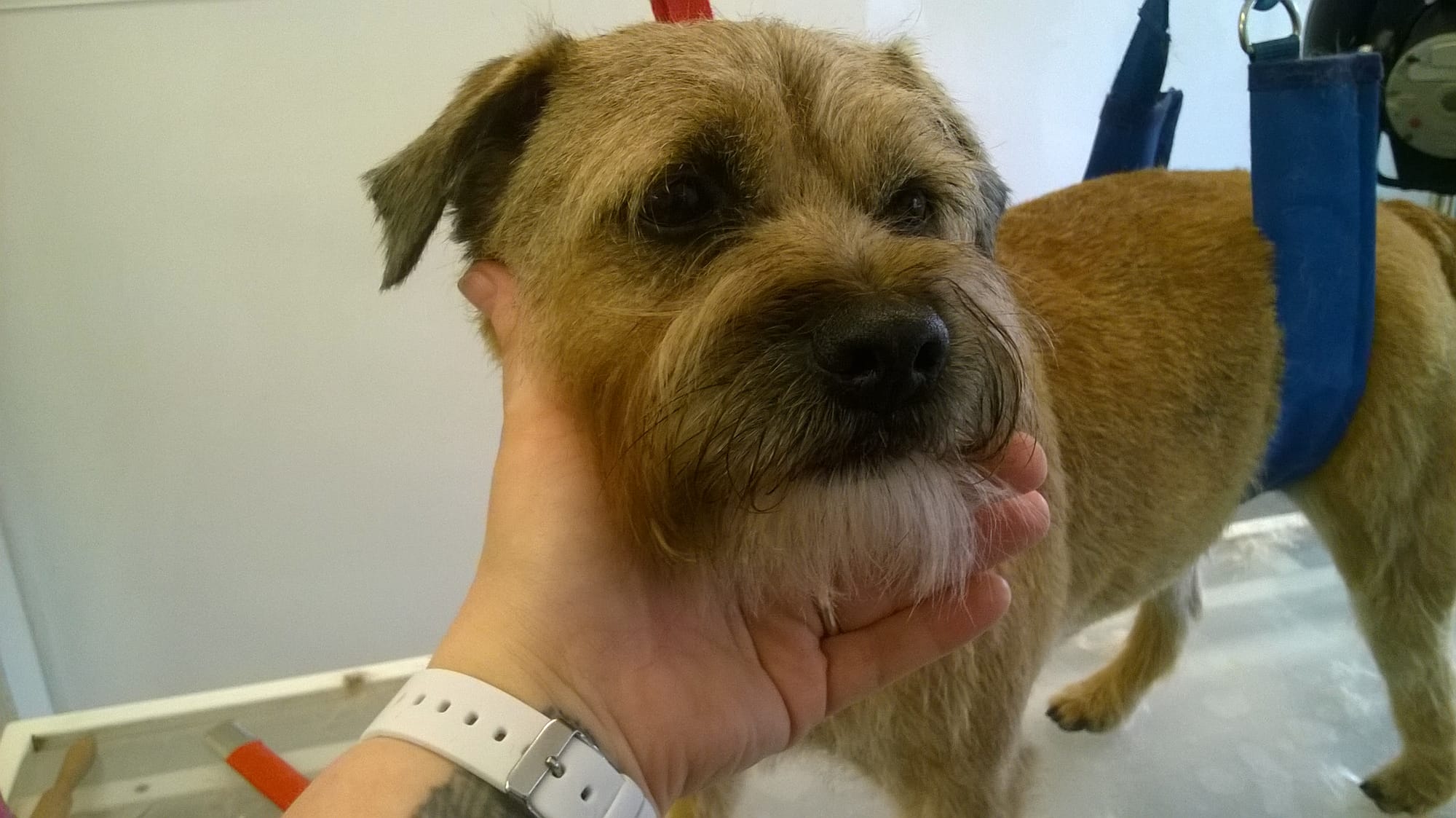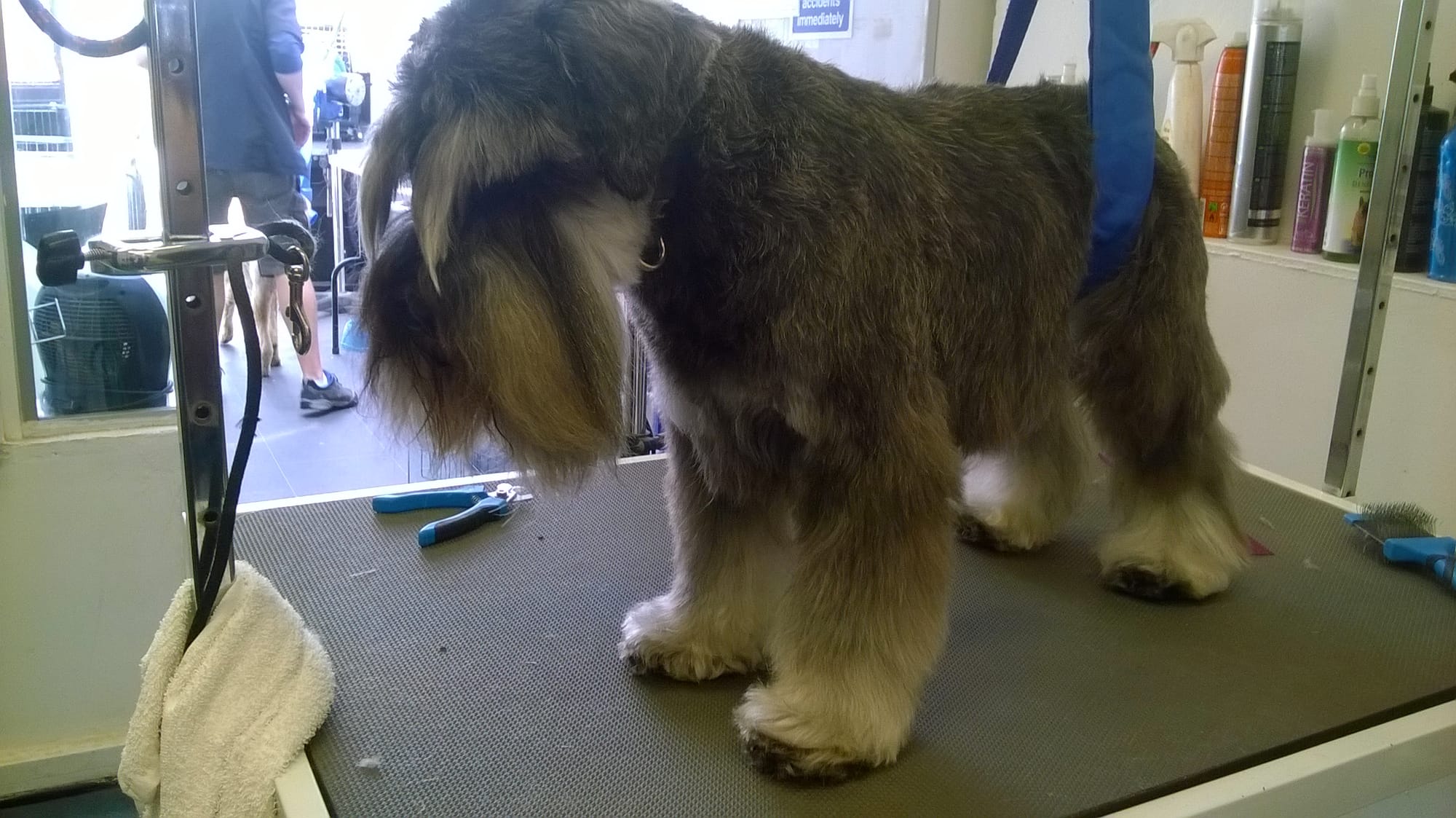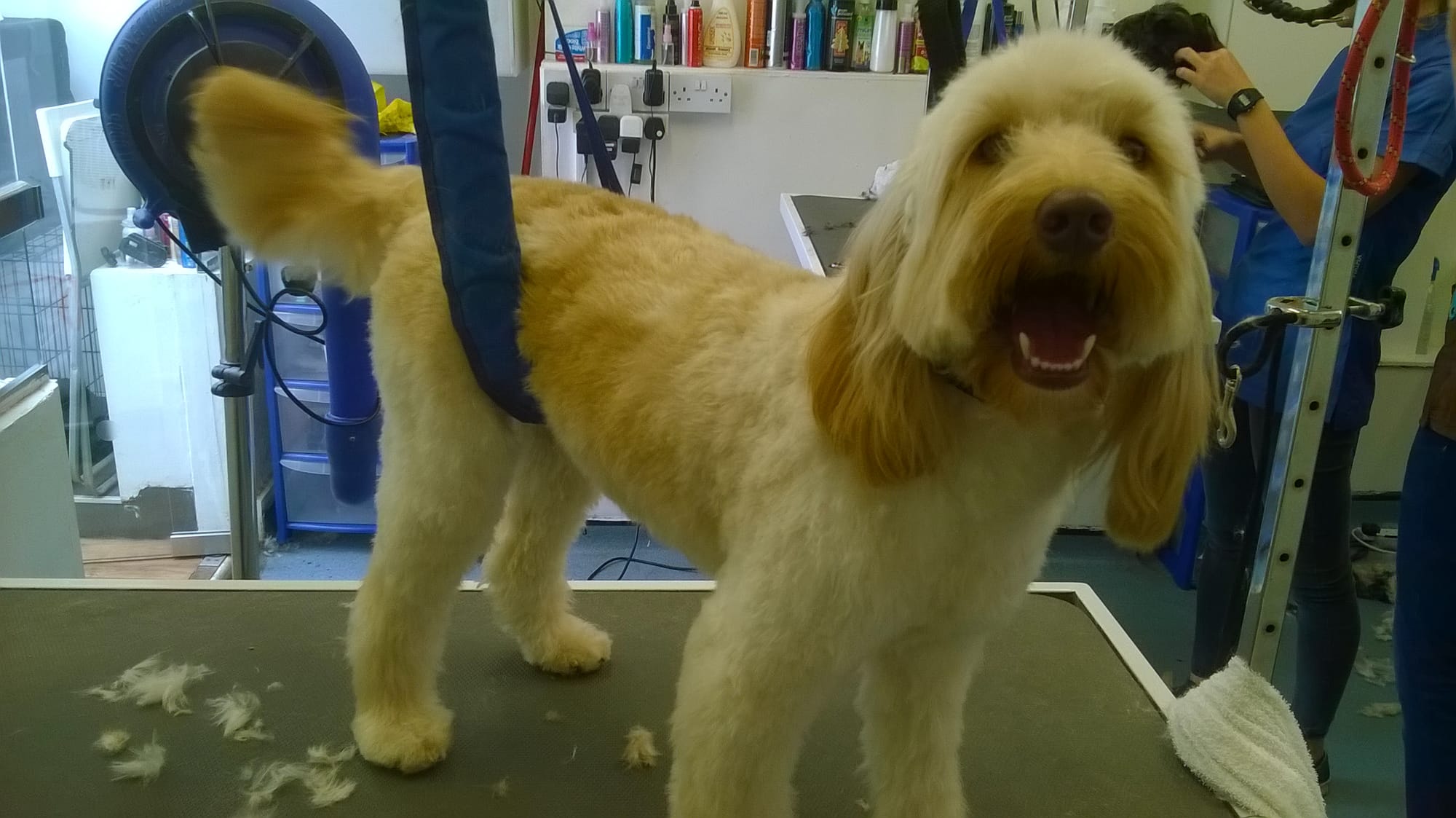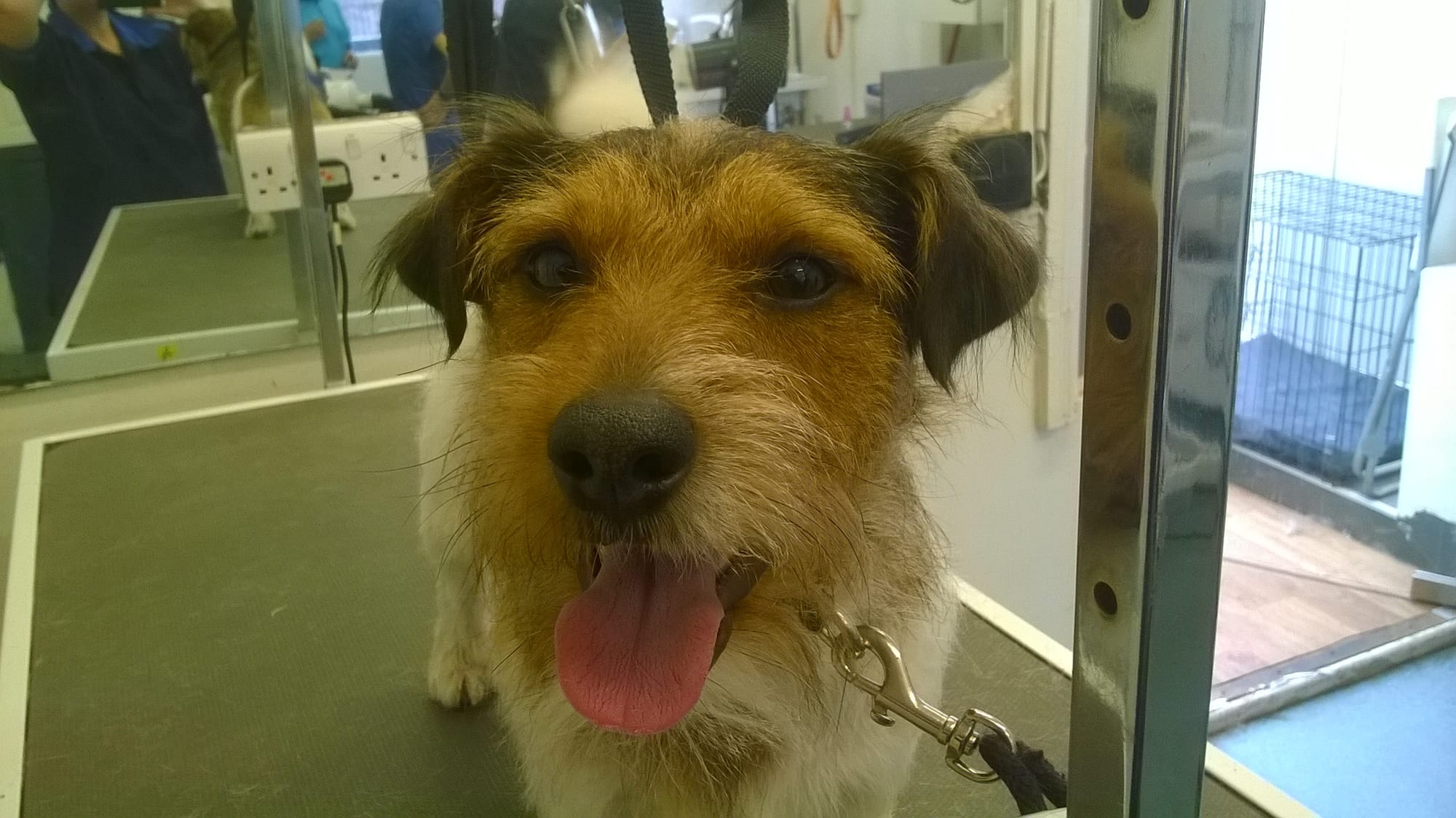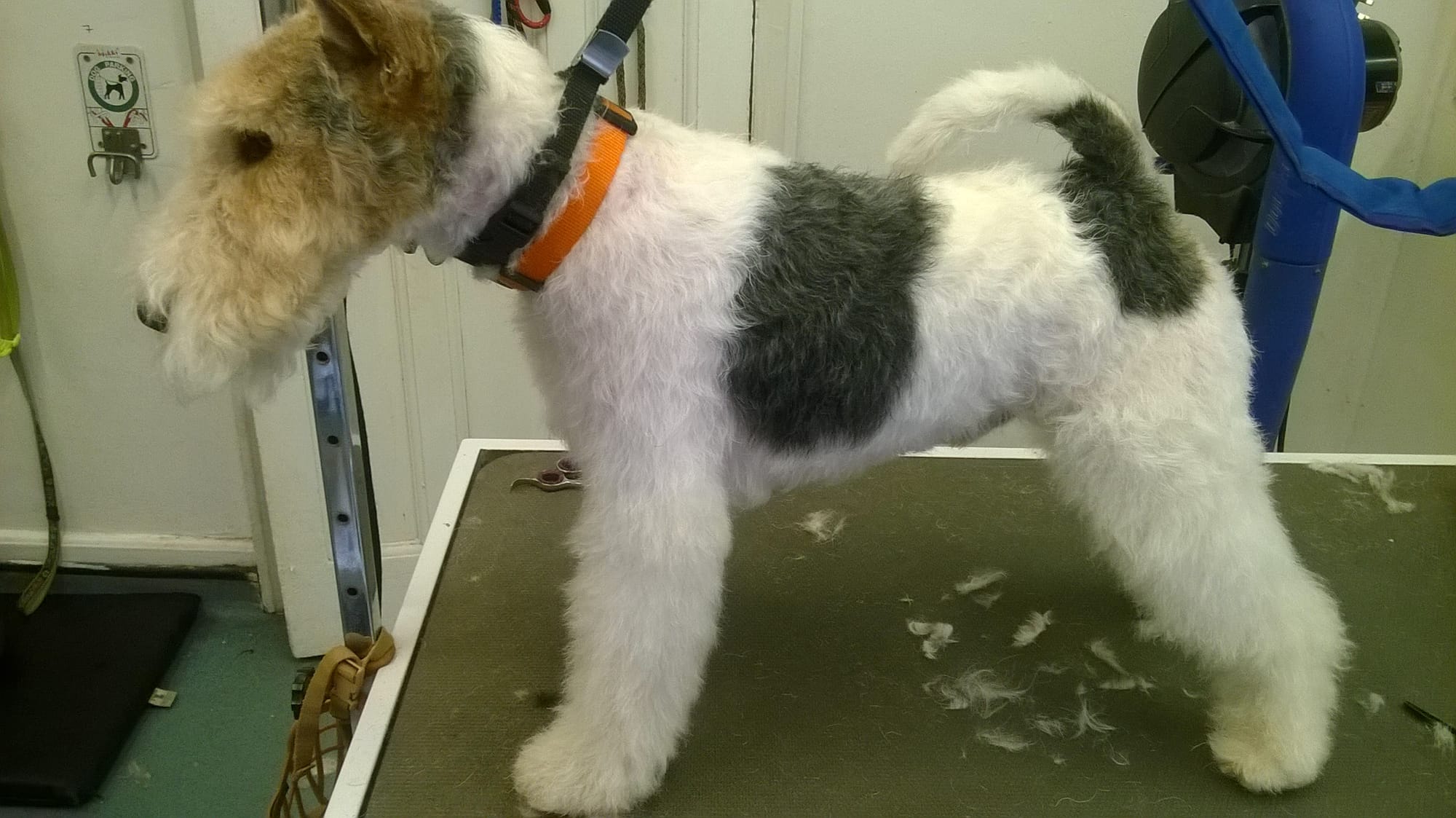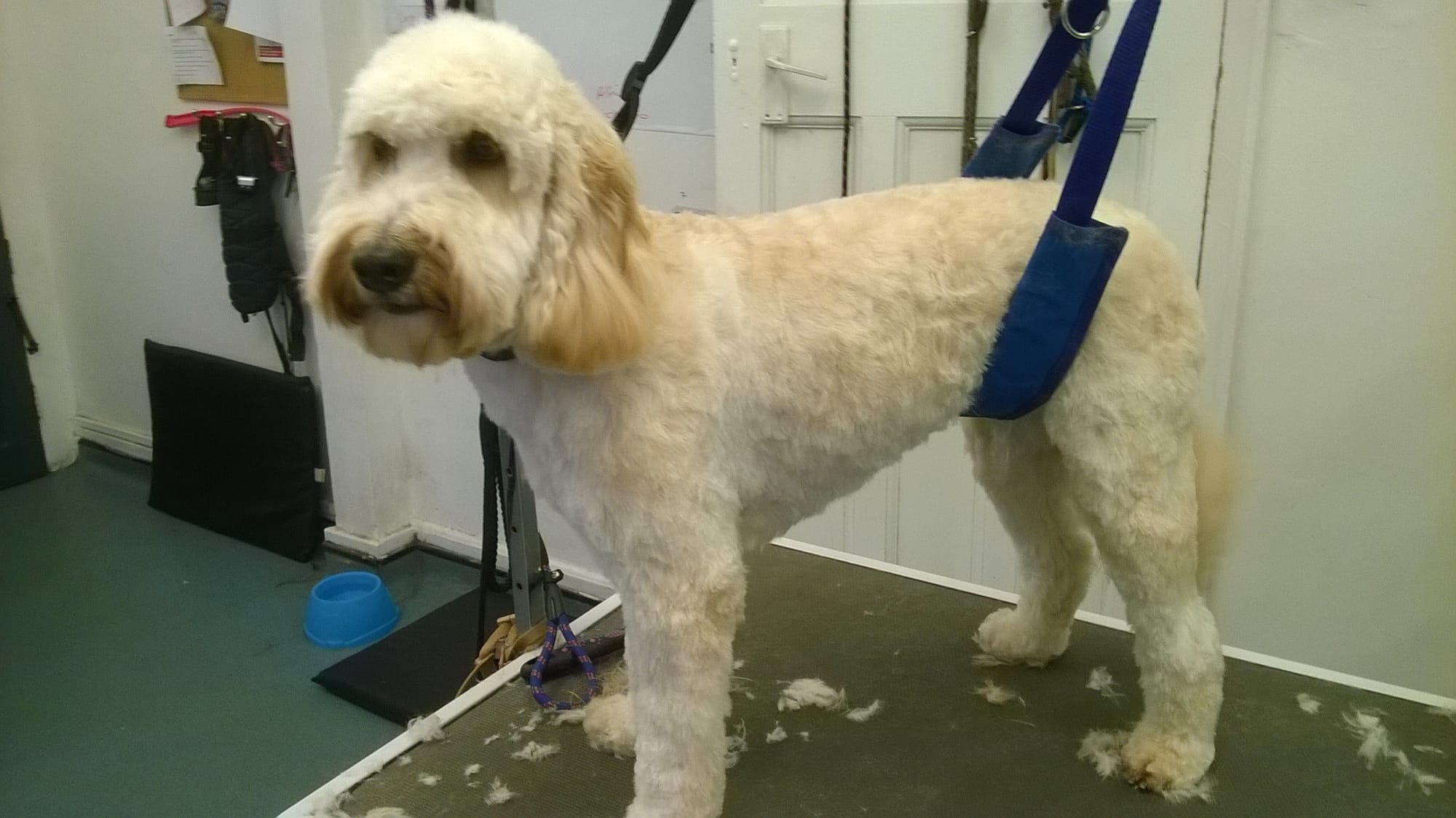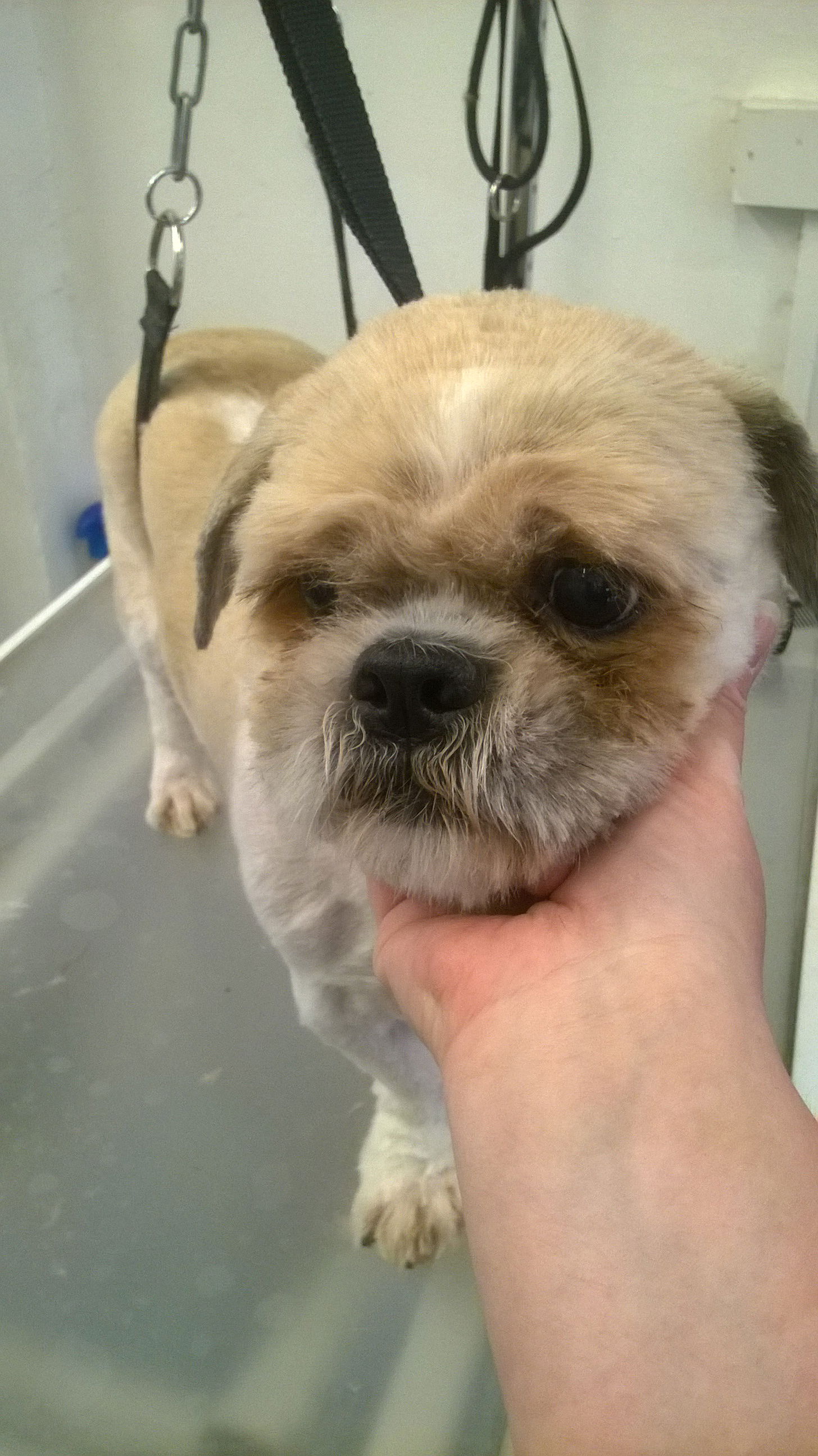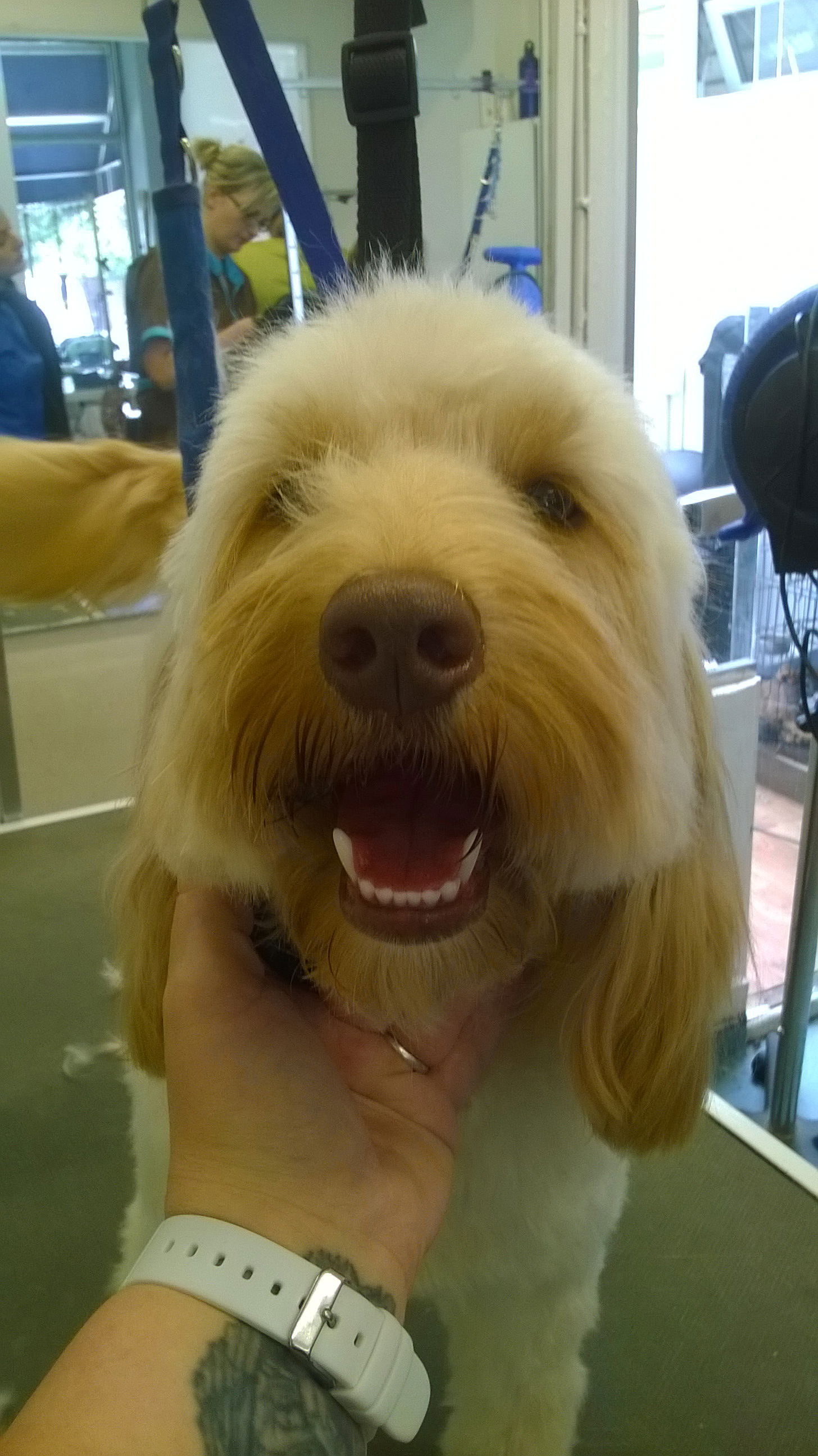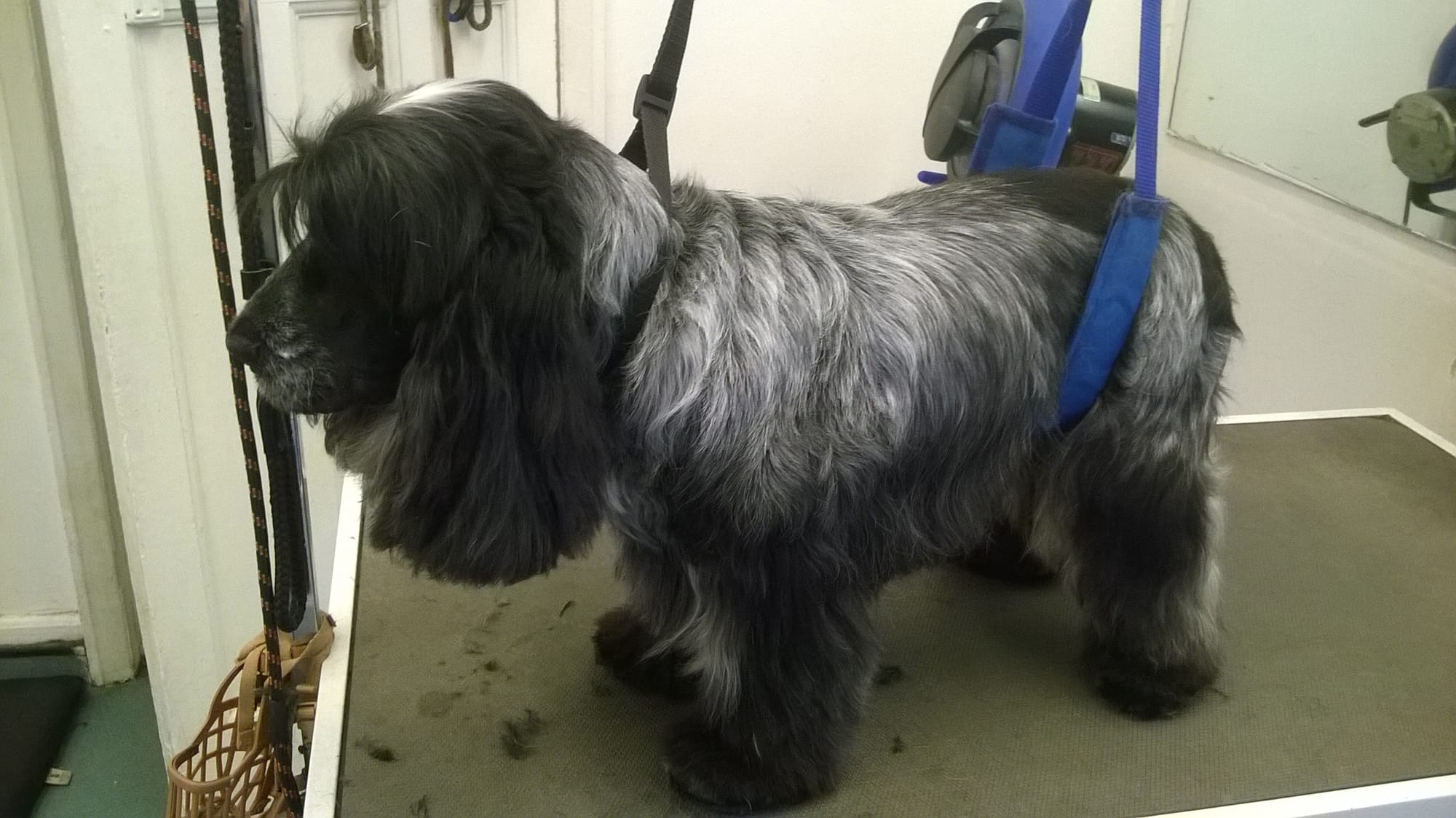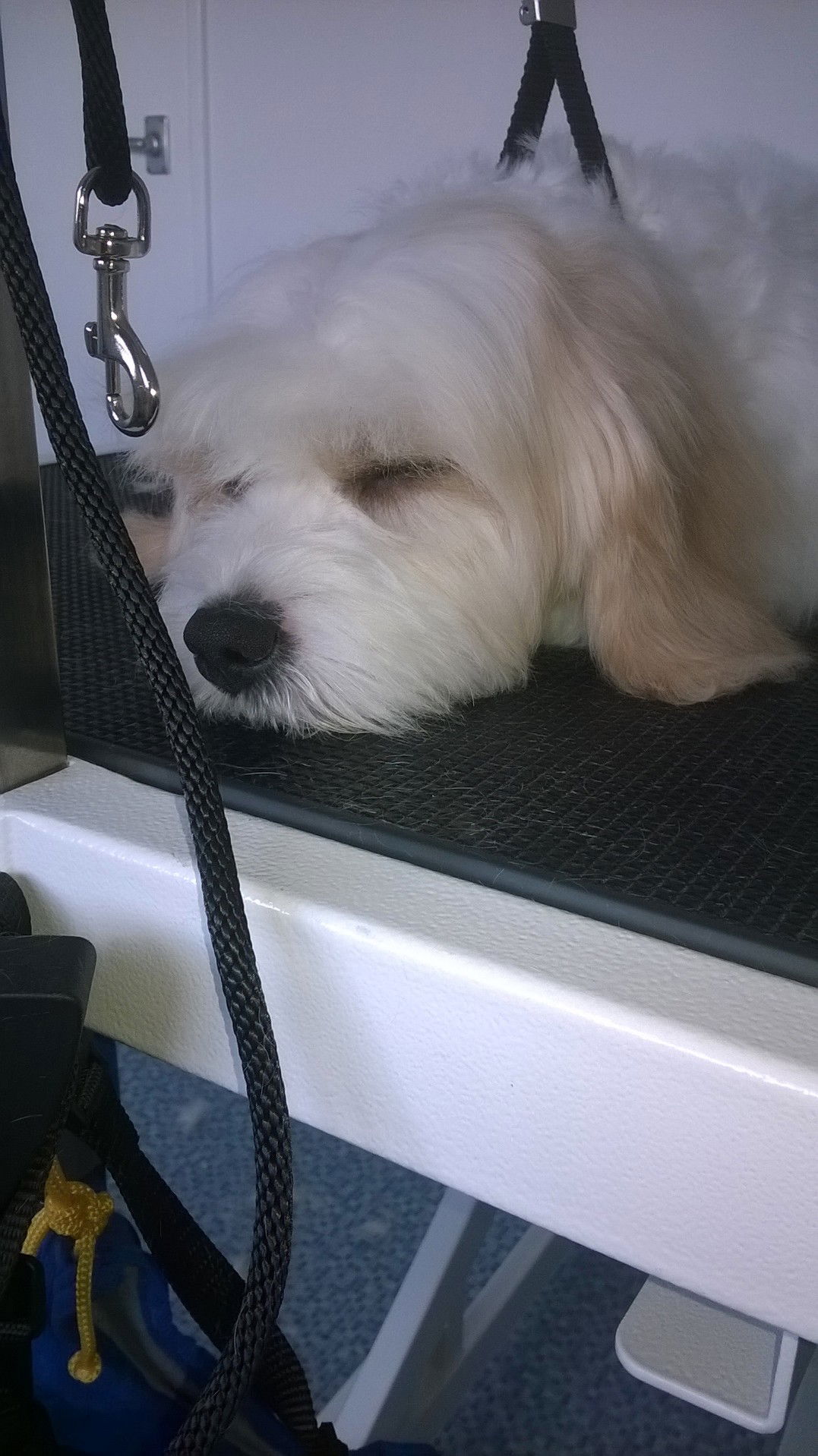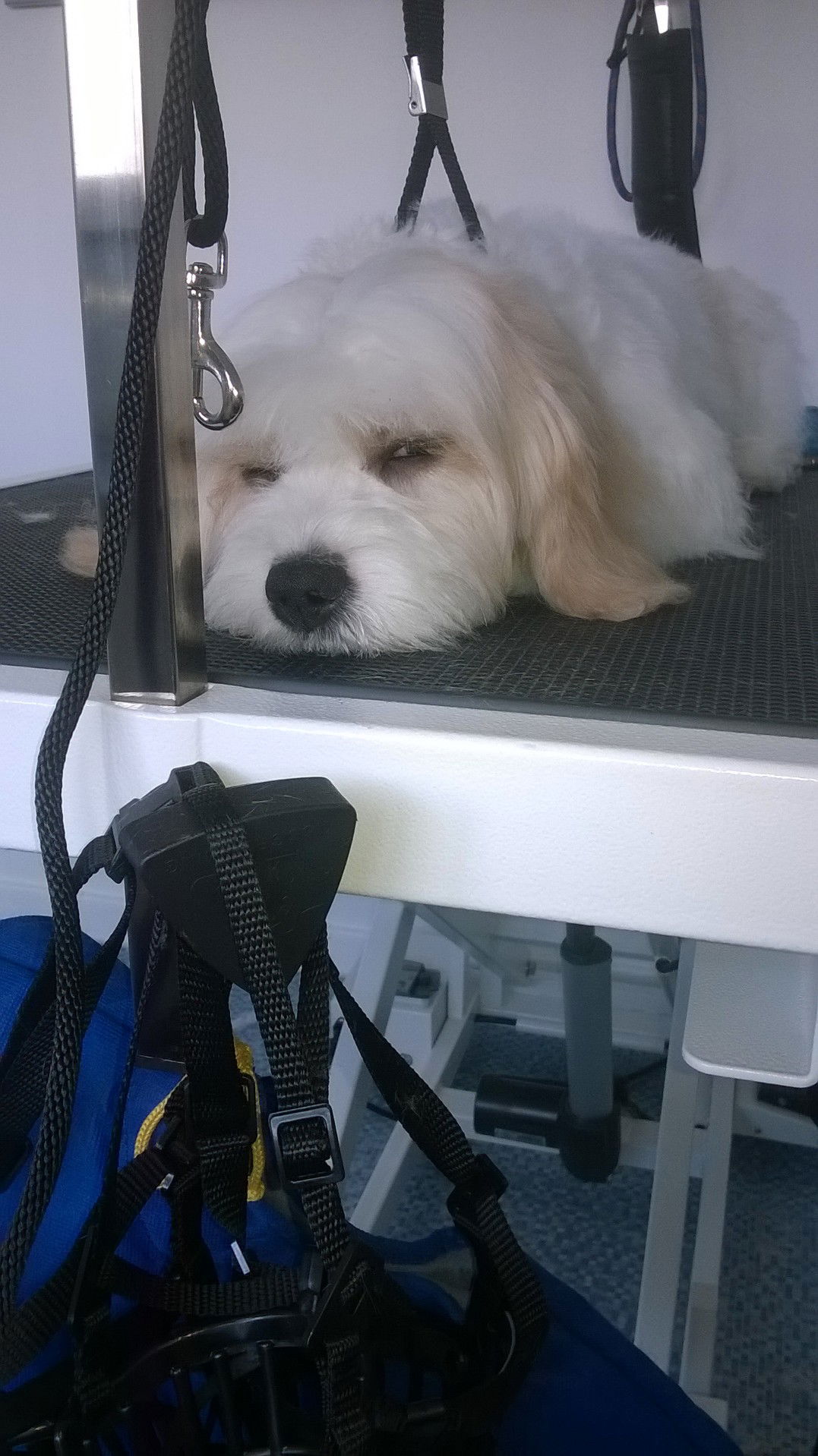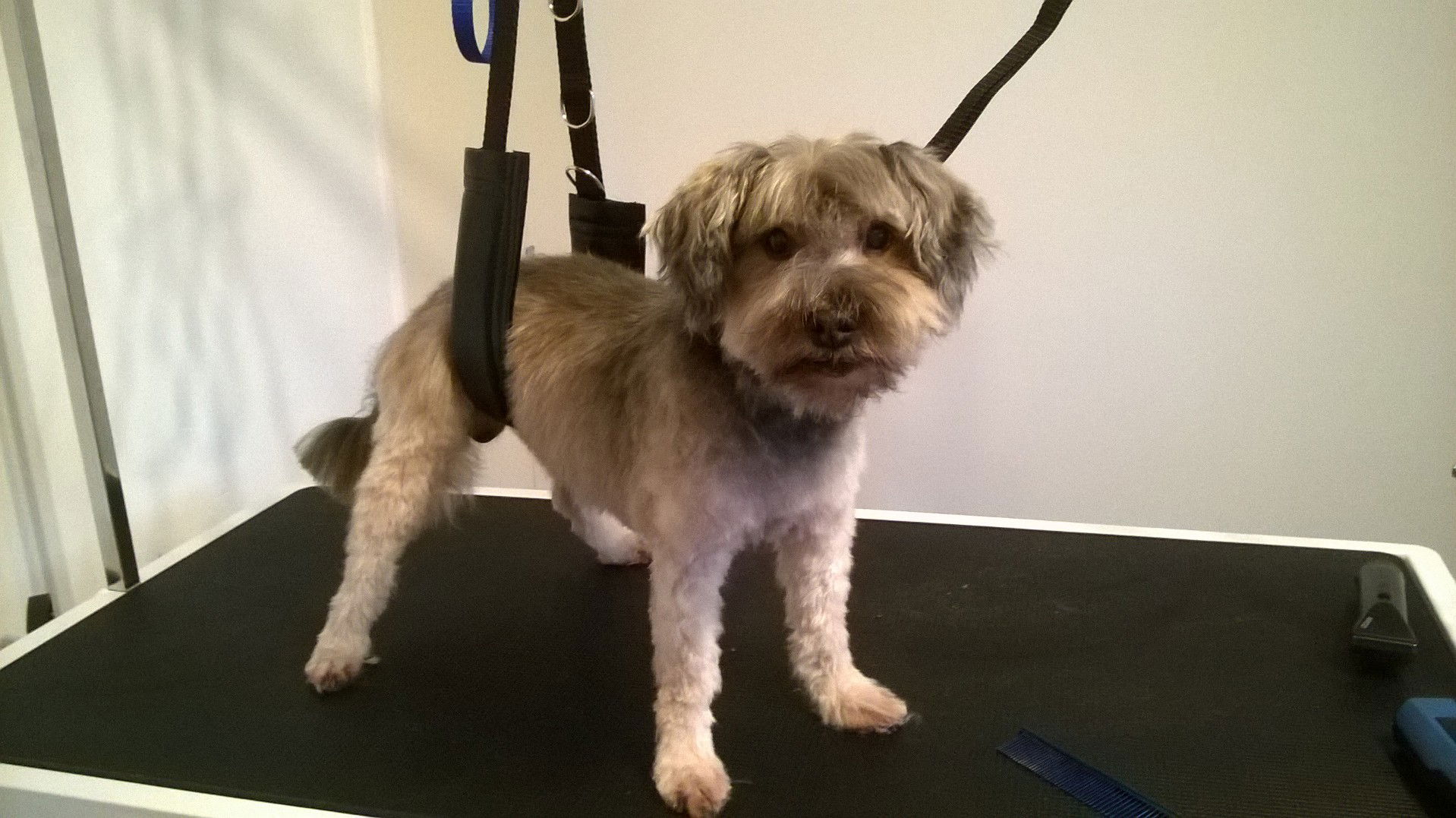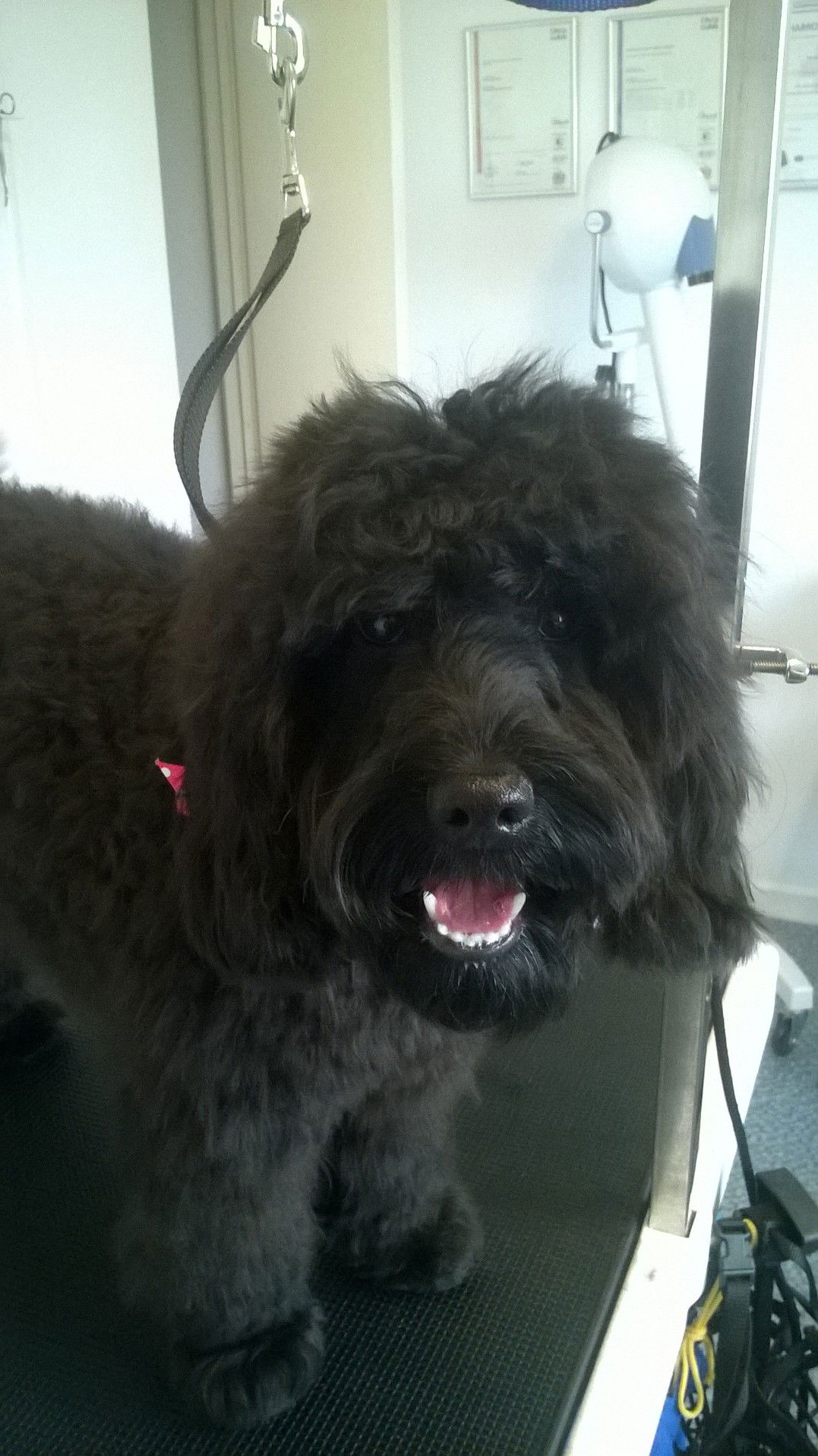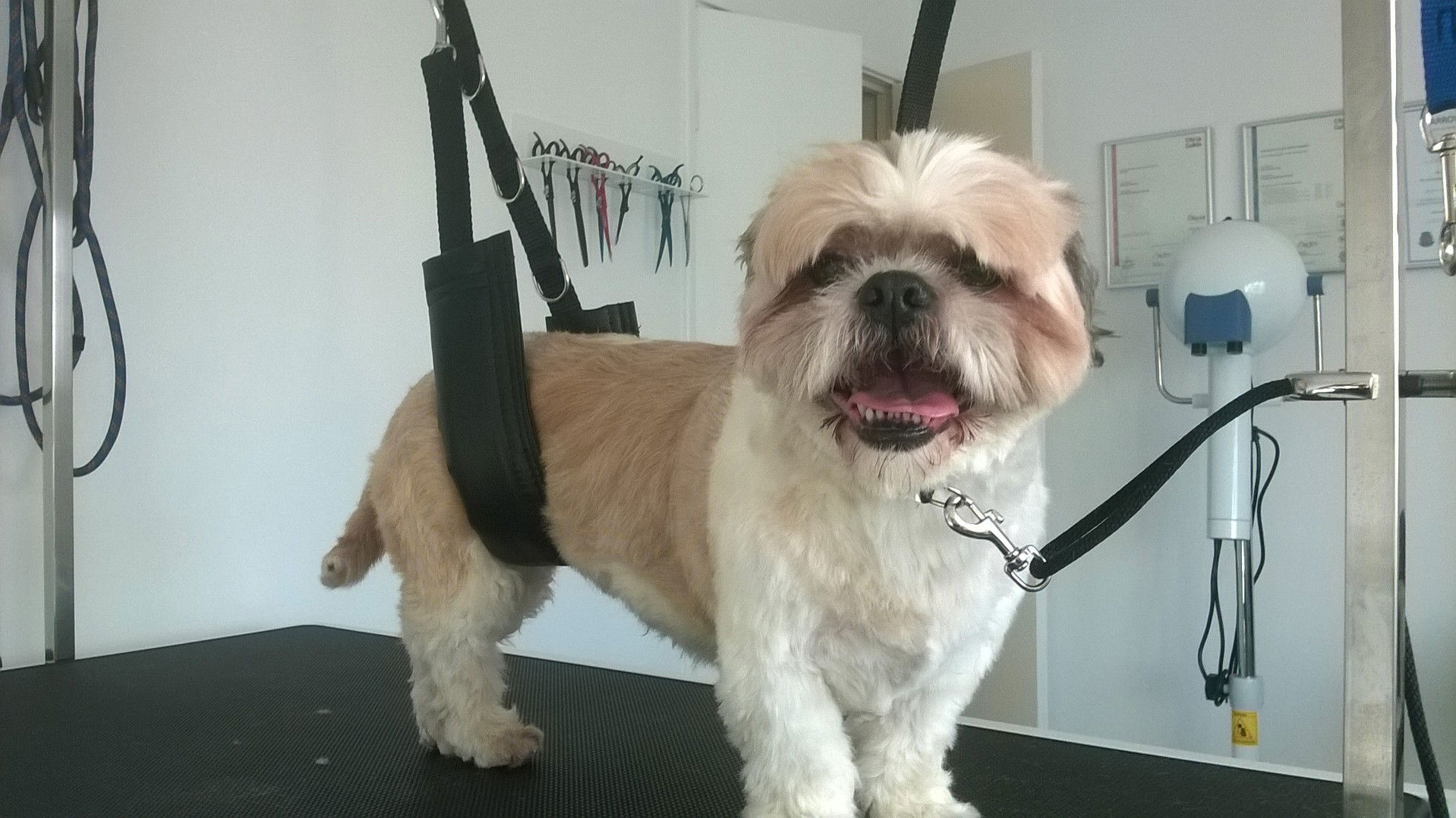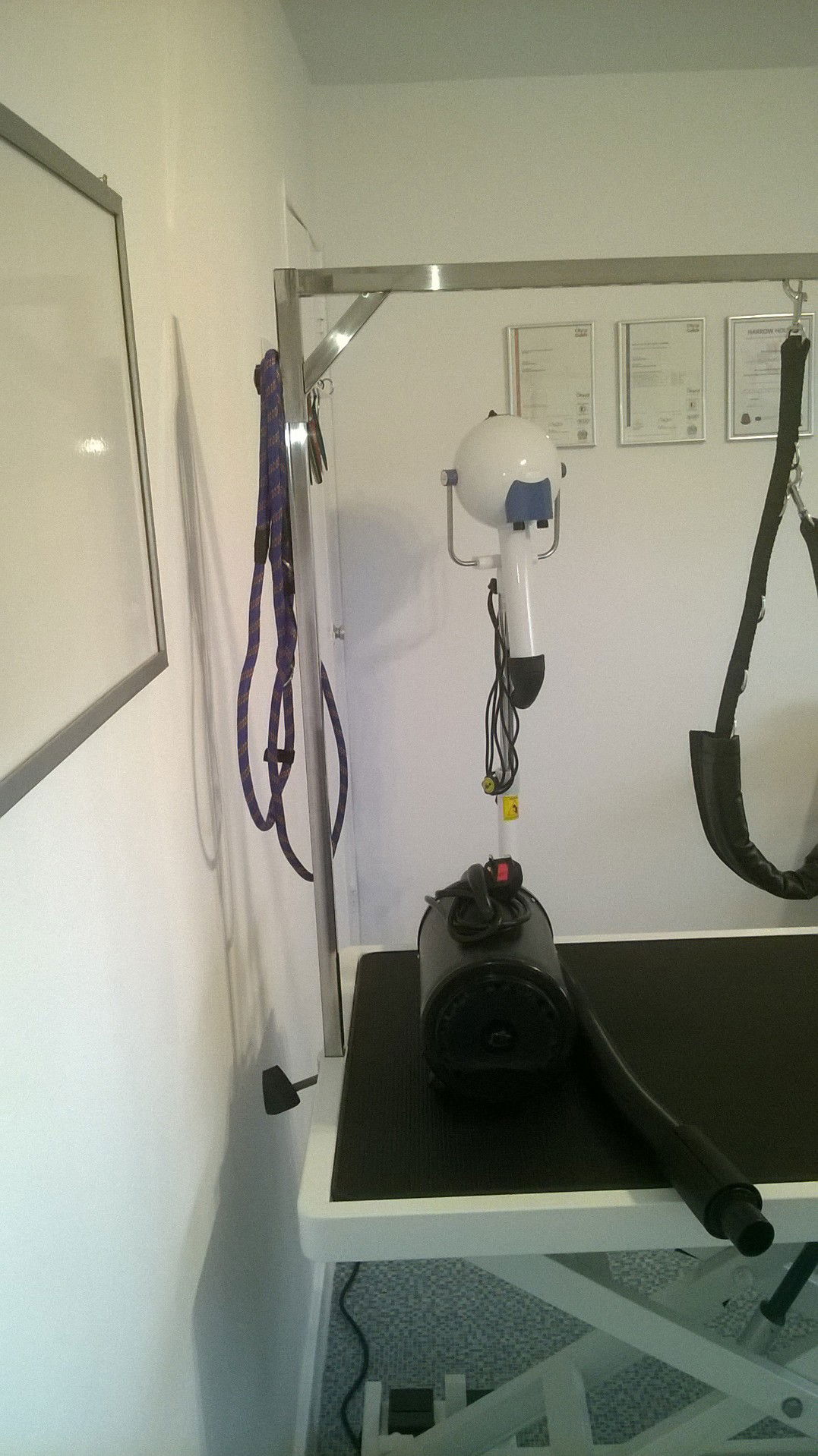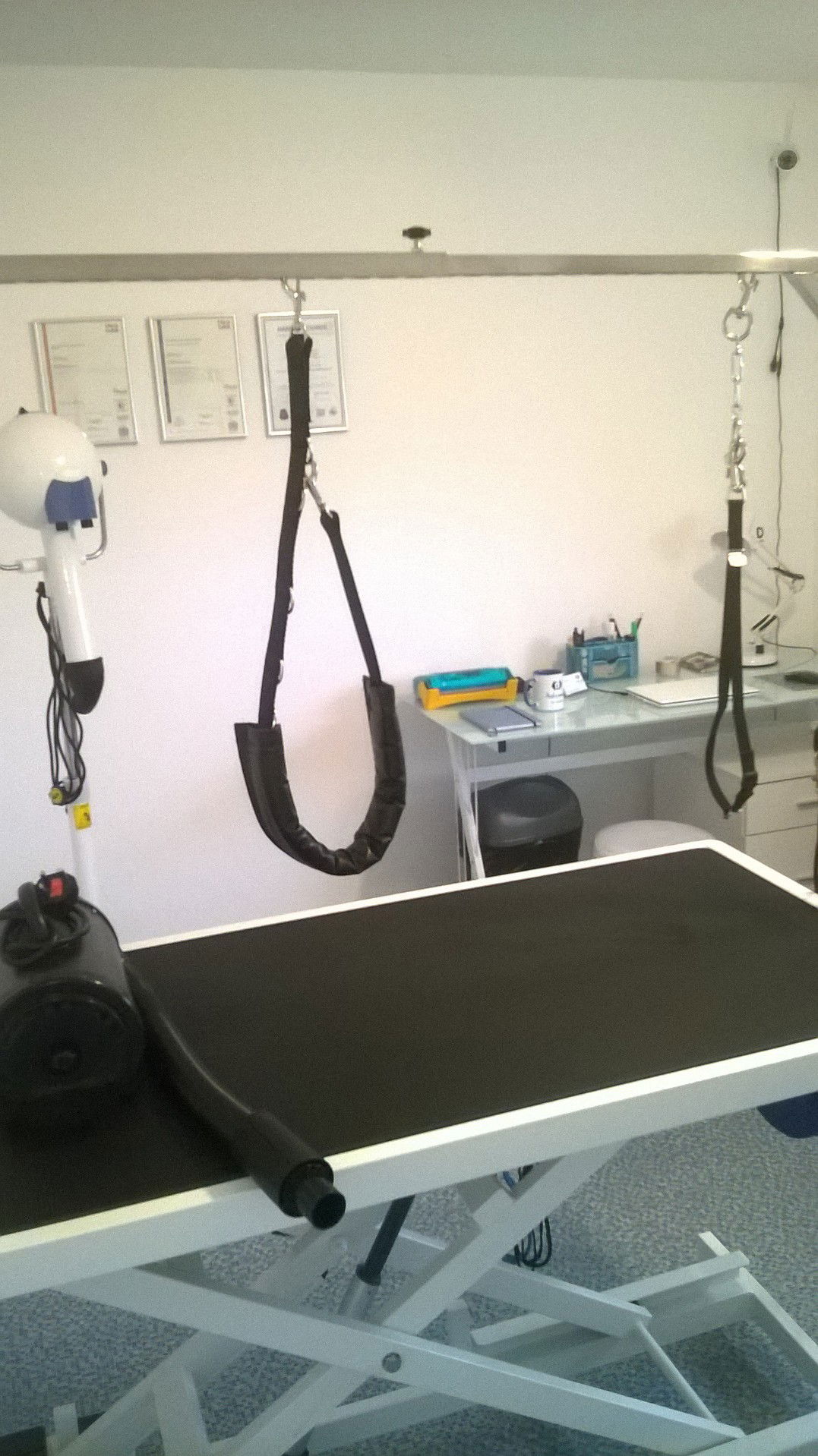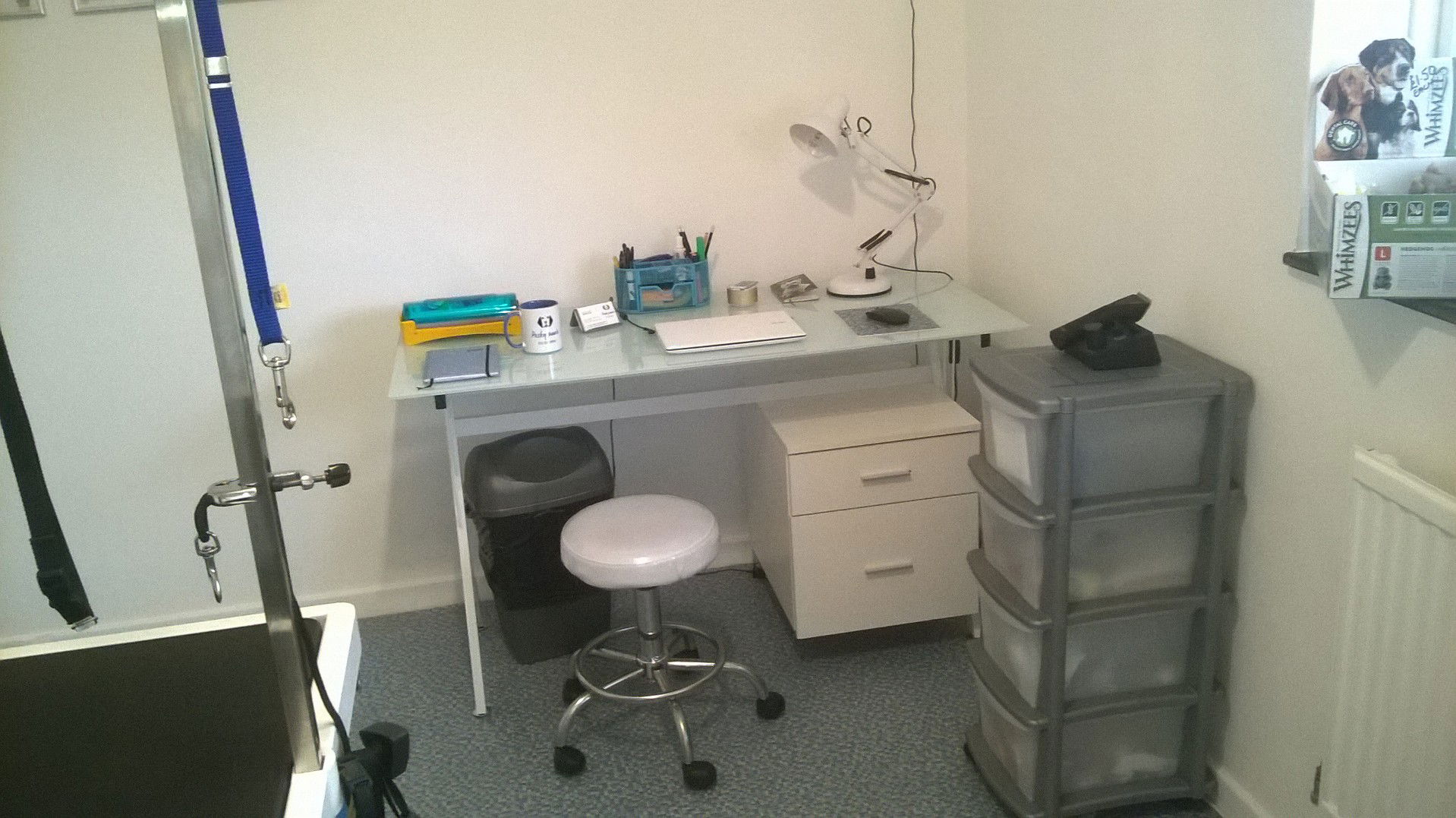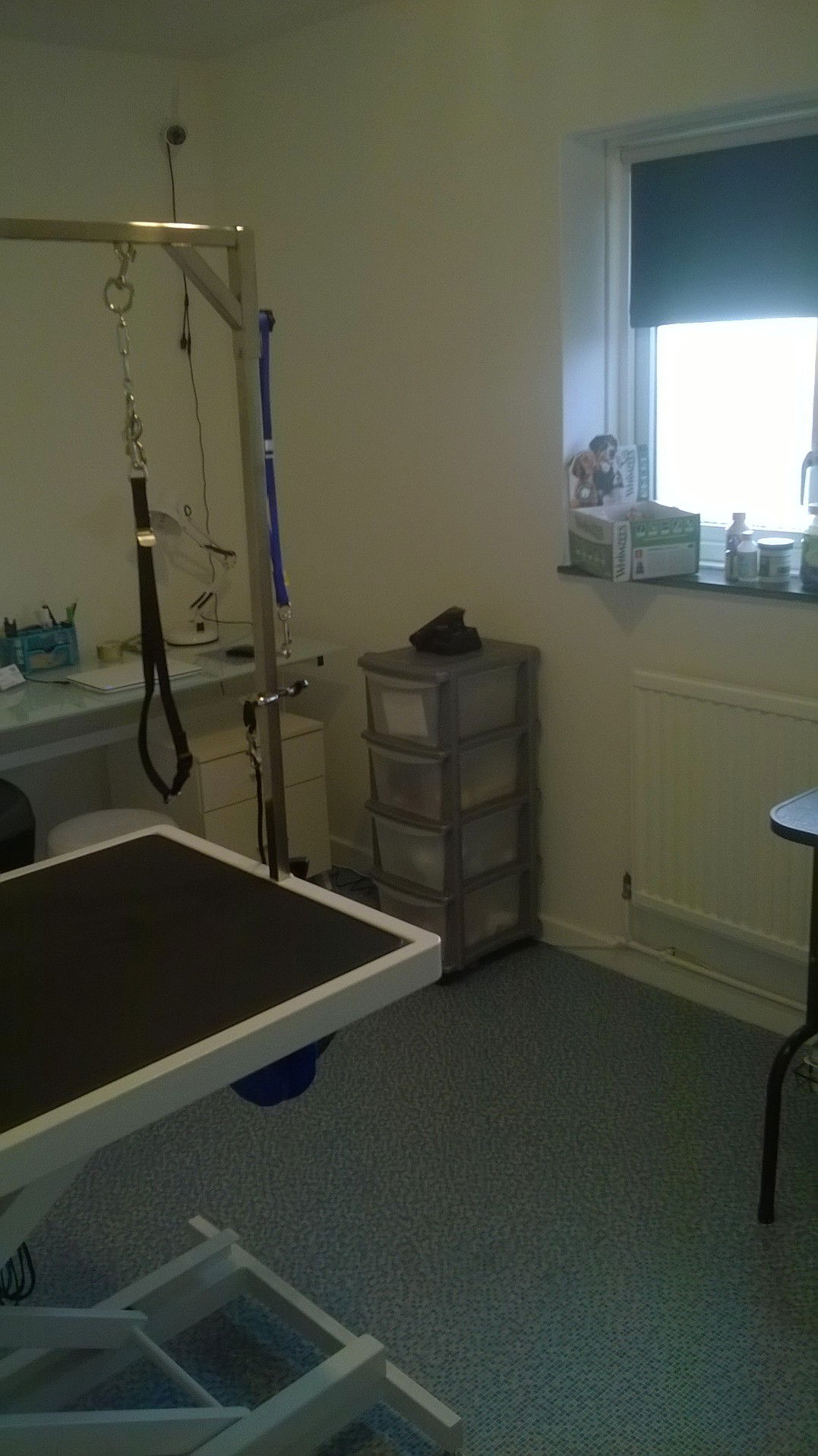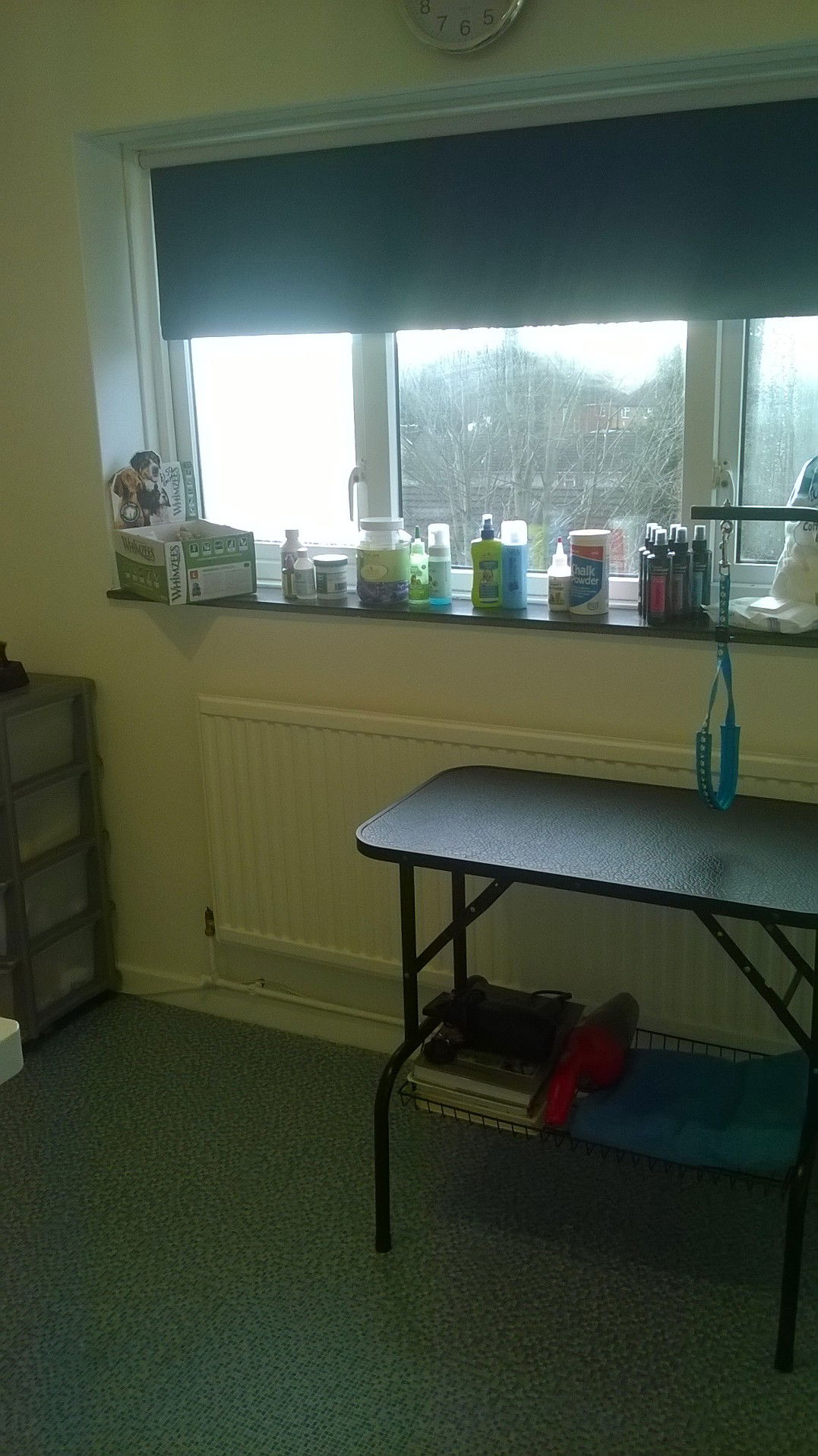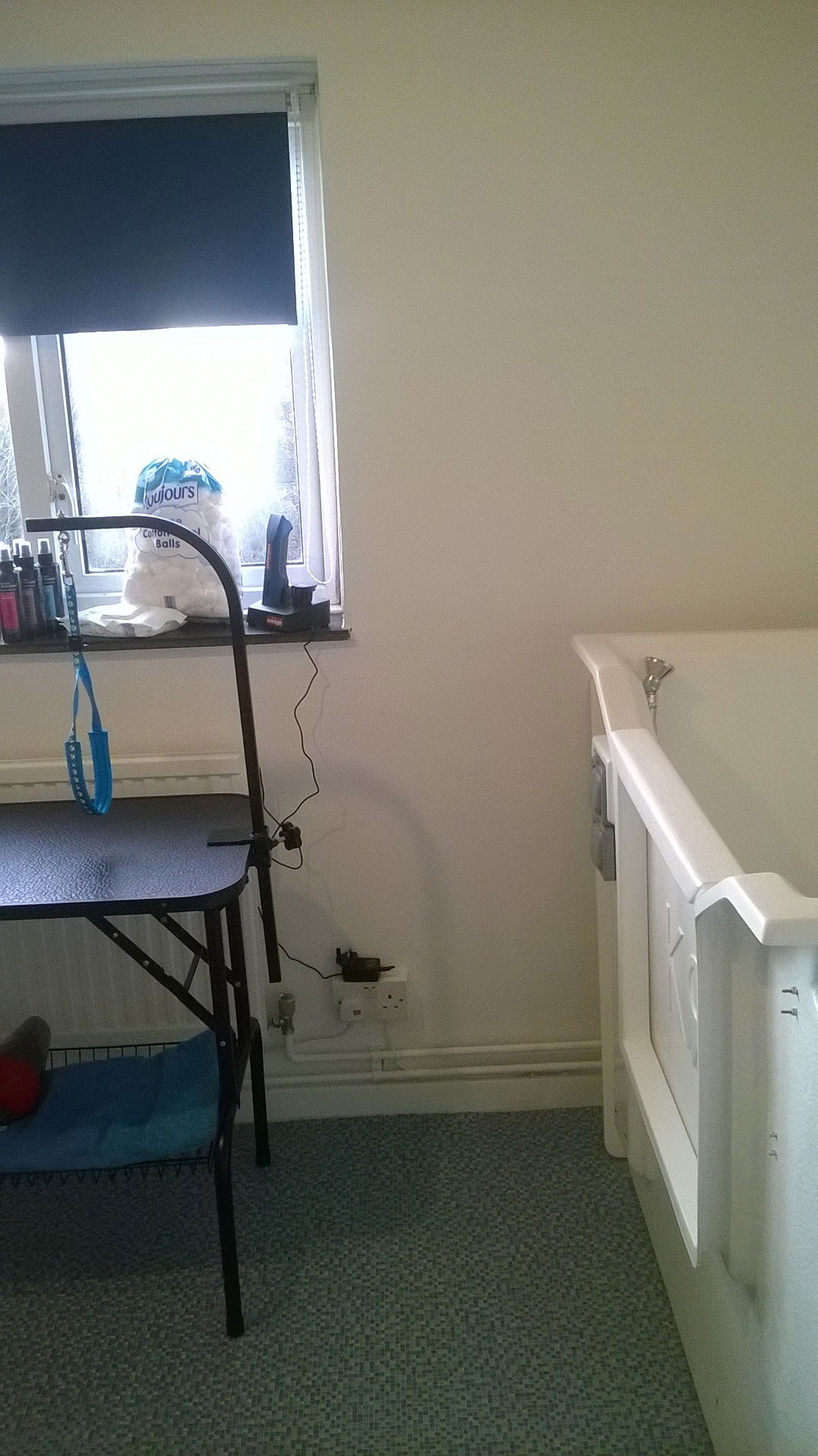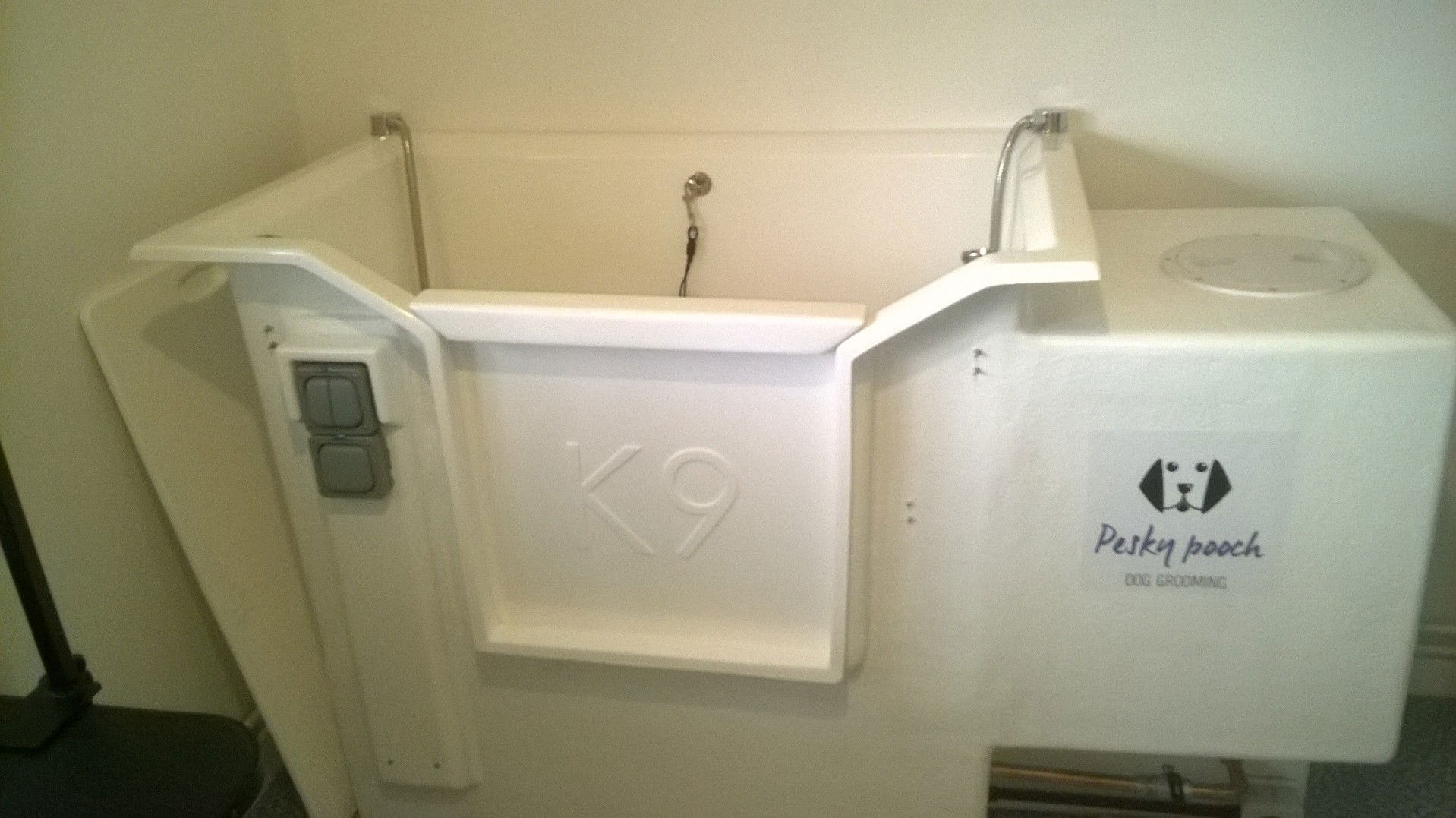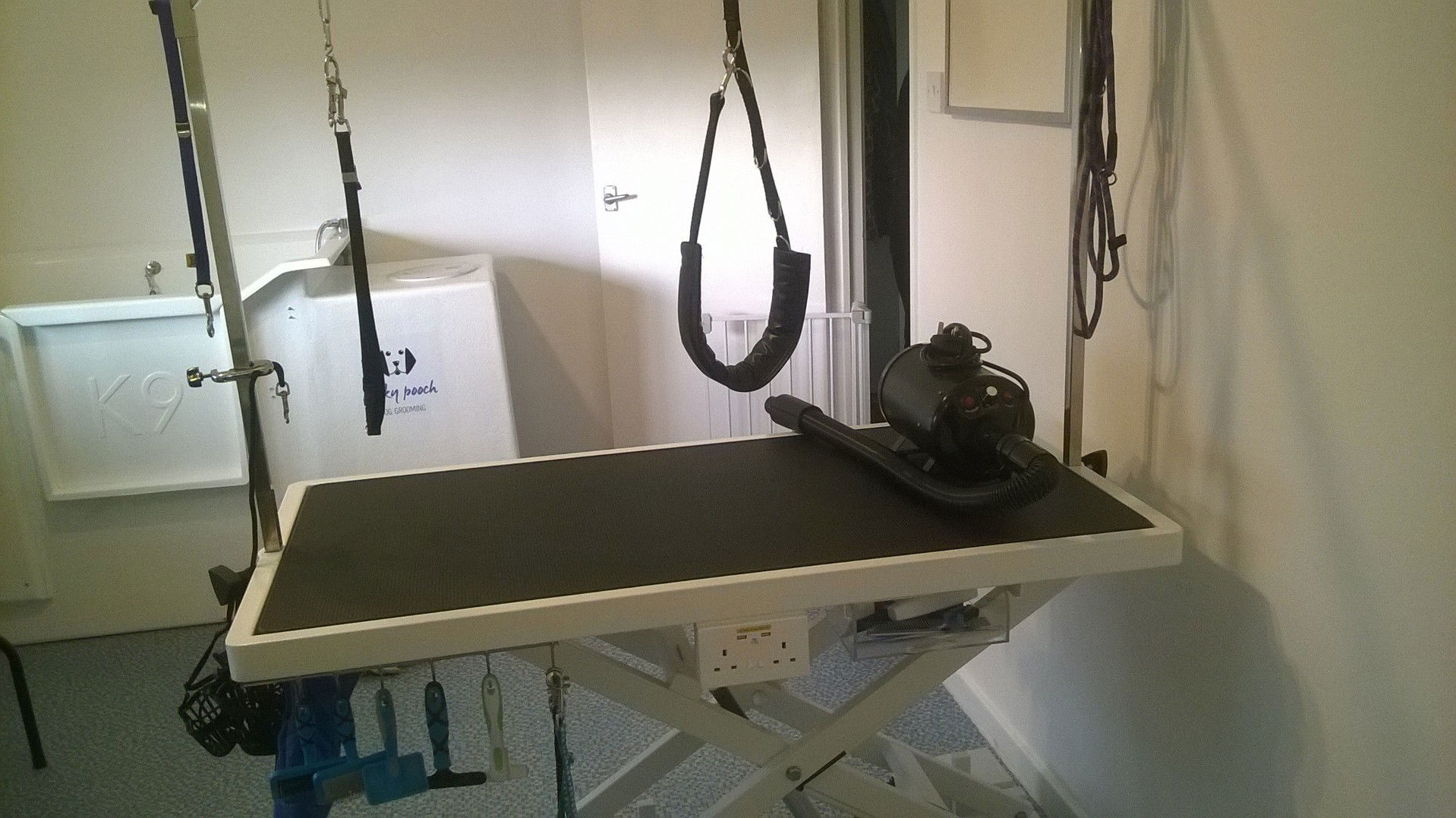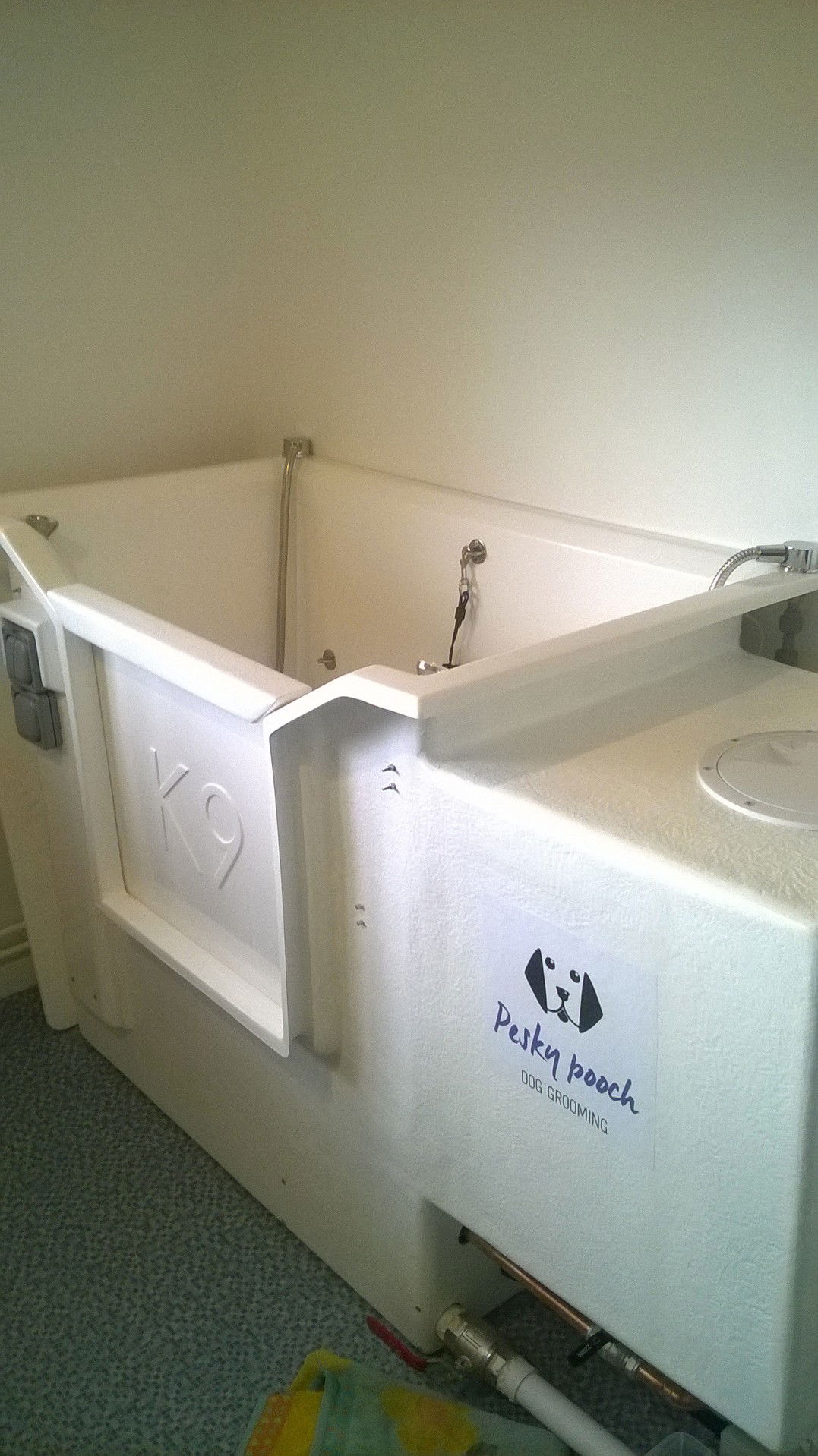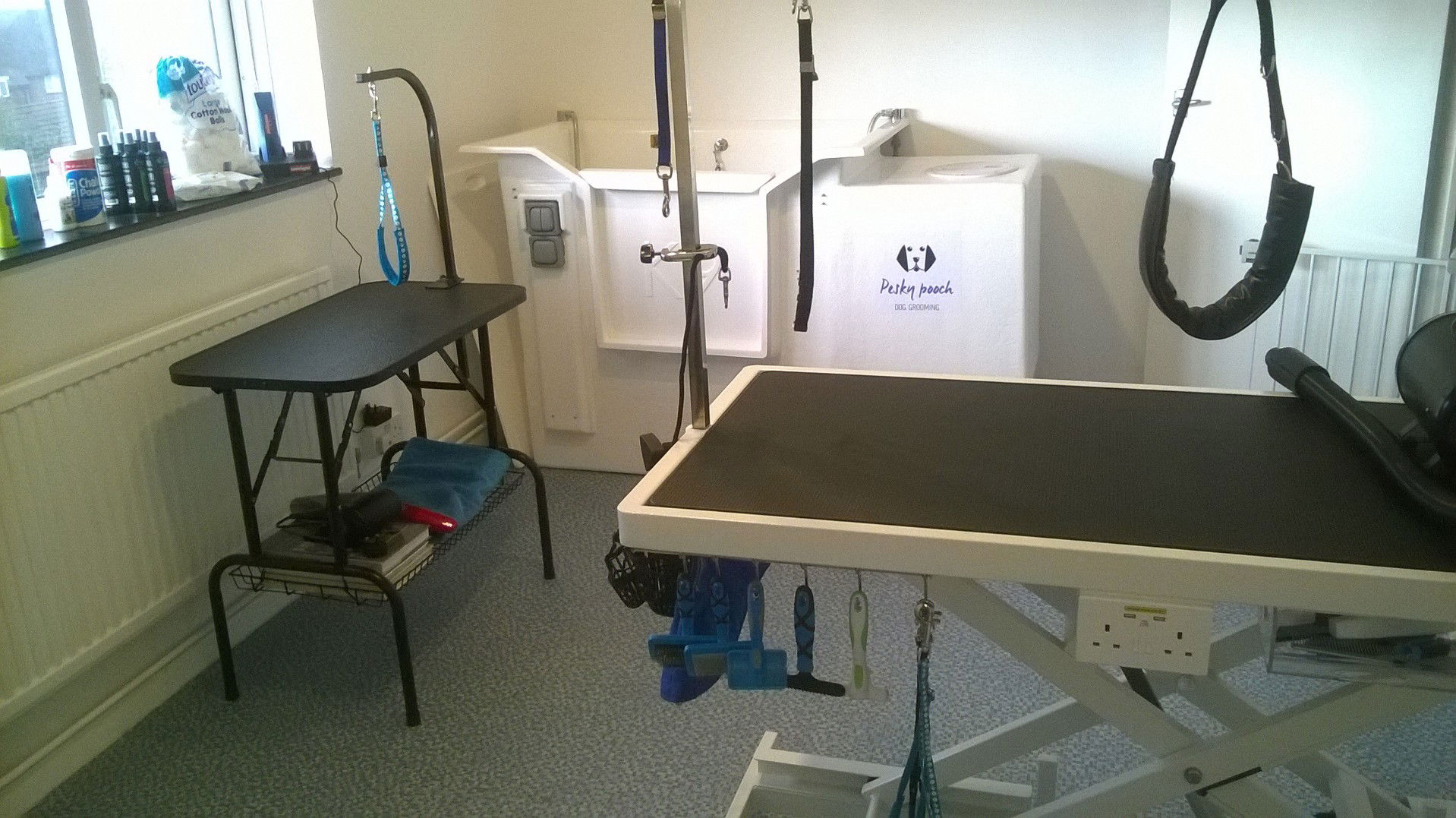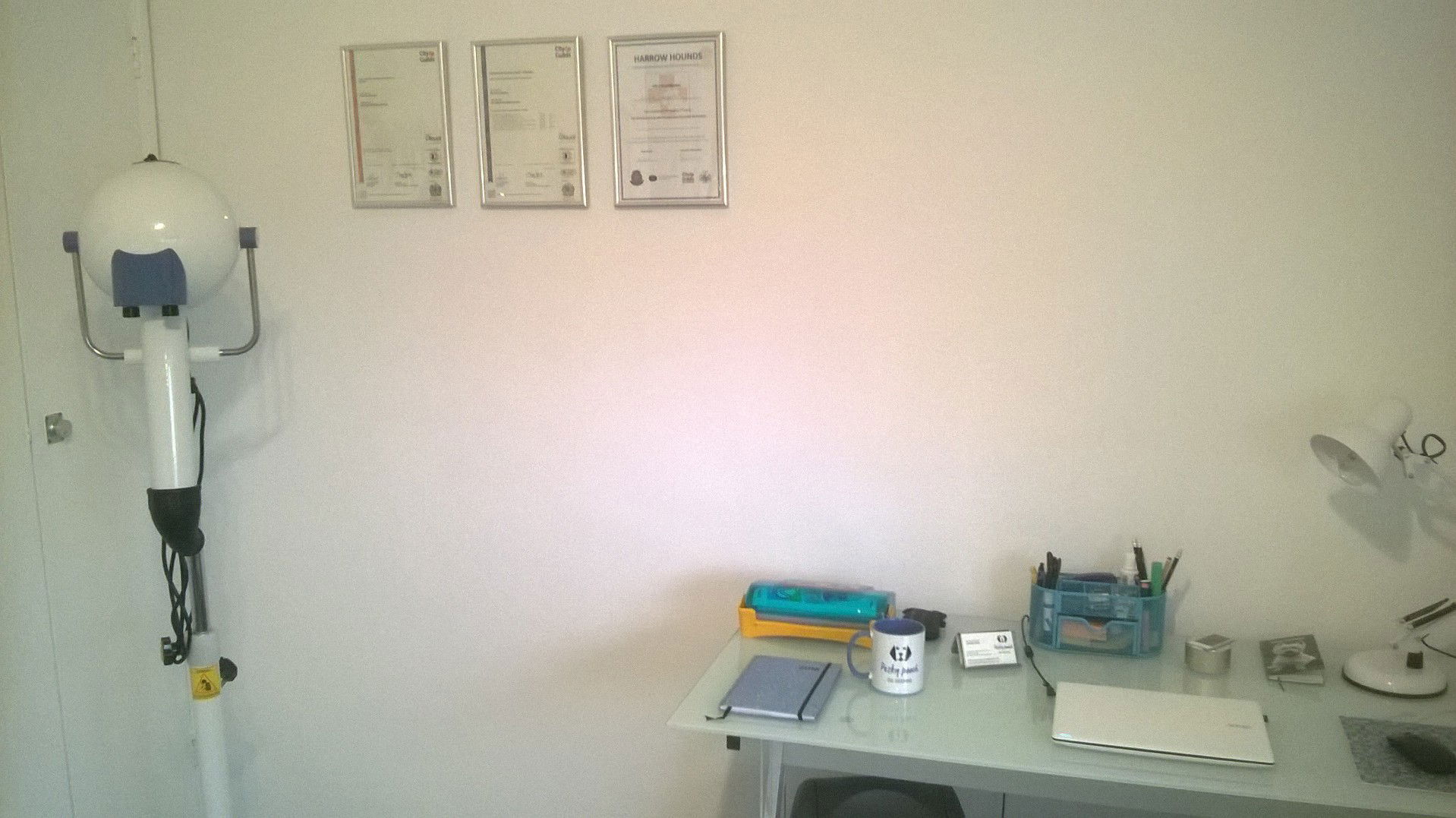Dog Grooming
From head to tail
About
I believe that there is no such thing as a impossible dog, there is however, such a thing as a scared dog, which needs time and patience, to over come its fears.
Not all groomers can give a lot of there time to one dog, but I can say that all dog groomers are animal lovers, only having the best intentions for the dogs that come into our care, and trying to give that dog the best professional service with the limited time we have.
As a personal dog groomer, all I ask is that what ever quirks your dog may have, you are honest about them, so I can work out what is needed, to help your dog become calm when groomed.
I learned to become a groomer at Dogs Delight grooming school with the owner Julie Lalou Simpson and her fantastic team. I am also trained in first aid for animals.
My core value is, " The dogs wellbeing, will always come first"

Tips go to local dog charities
Bring love to the world
Holiday yay
I will be closed from 30th July to 27th to 8th August 2020
Feel free to text, message or email me for an appointment
SUMMER HOLIDAY
We are taking our pooches on their holiday
WE WILL BE CLOSED FROM 31ST JULY AND REOPEN ON THE 8TH AUGUST 2020. I WILL ONLY BE BOOKING APPOINTMENTS VIA TEXT MESSAGES DURING THIS TIME.

Contact
Guest Article By Jessica Brody

Pets depend on us for everything: food, shelter, good health and love. American Veterinary Medical Foundation (AVMF), states that owning a pet is "an investment of time and money." Pet owners must regularly pay for medical care, pet toys, food and water, grooming and bedding. they need you o spend quality time with them. Daily exercise and social interactions are important to a pet's health and well-being. If you're looking for a pet and you've never owned one before, read on for tips on choosing the right pet and preparing your home for your new furry family member.
Determine the Kind of Pet for You
- How large is your home and yard? If you live in a tiny apartment, you probably don't want to buy a large dog like a Great Dane. Larger breed need ample space in which to live. They also need plenty of room to run, so a spacious backyard is a must. If you live in a small apartment or house, consider buying a cat or small breed like a miniature poodle.
- Do you have allergies? Get a pet that won't have you sneezing all the time. MNN.com reports there's no such thing as a completely hypoallergenic pet. Veterinarians use this term when referring to breeds that produce less allergens than other types of dogs or cats. People allergic to pets don't have a runny nose because of pet fur. They're suffering from allergies because of proteins in a pet's dander, urine or saliva. Fortunately, there are hypoallergenic pets out there such as the Portuguese Water Dog, Sphinx Cat, Standard Poodle and Devon Rex Cat.
Preparing Your Home
Once you choose a pet, it's time to prepare your home. Begin by pet-proofing the house. This includes putting household chemicals out of future pet's reach. Keep medicines locked away from your pet to avoid accidental ingestion. Get electrical cords off the floor to prevent your pet from chewing on them.
Purchase the equipment your pet needs. Food and water bowls, a litterbox, a leash, a collar, an identity tag, pet toys and a pet bed are just a few items you should have ready before your pet enters the front door.
Help your new pet acclimate to a new home by making sure she has everything she needs to begin a new life with you. Cats feel uncomfortable in unfamiliar places. The best way to make your new cat feel at home is to leave it alone in a room along with its pet food, water and litterbox. This will help the cat feel safe in its new surroundings. Once the cat begins to feel comfortable, you can begin interacting with it. Discover which cat toys your cat likes the most. Then play with your cat one to two times a day using those favorite toys.
If you're bringing home a new dog, allow your new pooch to sniff around the yard. He'll become accustomed to the new sights, sounds and smells of your neighbourhood. It will also give you a chance to show Fido where he'll go to the bathroom. When it's time to introduce your dog to the house, keep him on a leash as you give him a tour of the house. Let him continue to sniff around. Rescue pets are often nervous, so these steps are extremely important to ensure your new pet is comfortable.
Companion Animals for Recovering Addicts
Are you a recovering addict? Caring for a companion animal can help you in your recovery. Pets demonstrate unconditional love. They boost self-esteem, lower your blood pressure and provide you with someone to take care of.
If you've never owned a pet, carefully consider the type or breed of pet that fits your lifestyle. The size of your home and yard (or lack thereof) will determine the size of pet you welcome into your life. Once you decide on the pet you want, pet-proof your home so your furry friend remains safe and healthy. Owning a pet is a huge responsibility where you commit to caring for a pet throughout its life. If you keep these factors in mind, you'll end up with the right pet to fit your lifestyle and needs.
Photo via Pixabay
Blog
If you are unsure if these companies listed can offer you the service you require, please just give them a ring, most are willing to help out in any way they can to support your needs.
Store
dog oral care
Soft and flexible finger tooth brush
Finger toothbrush featuring soft bristles to help remove plaque, tartar and debris from teeth and gums. can be used in conjunction with a dog friendly toothpaste. Simply slide onto your finger and softly brush teeth and gums.
Whimzees Hedgehog
Whimzees natural dog treats have limited ingredients, and are gluten free, grain and corn free, GMO free, highly digestible and vegetarian. These large hedgehog treats are for dogs only and weight ranges 18-27kgs or 40-60 lbs. Be sure your dog has access to fresh water. As with any edible chew, monitor your dog while chewing. For dogs 9 months and older.
Homemade toys
Snuffle Ball
Comes in pink / grey, or blue / grey combination. Easy to place small tasty treats, at its centre, for your furry to sniff and snaffle out. Made from soft fleece. Always supervise your pet with toys.
Snuffle Mat
Comes in pink / grey, or blue / grey combination. Size 19 inches(long) by 15 inches(wide), or 49 cms(long) by 38 cms(wide). Made from soft fleece, with plastic back. Easy to hide small / medium tasty treats for your furry to sniff and snaffle out. Always supervise your pet with toys.
